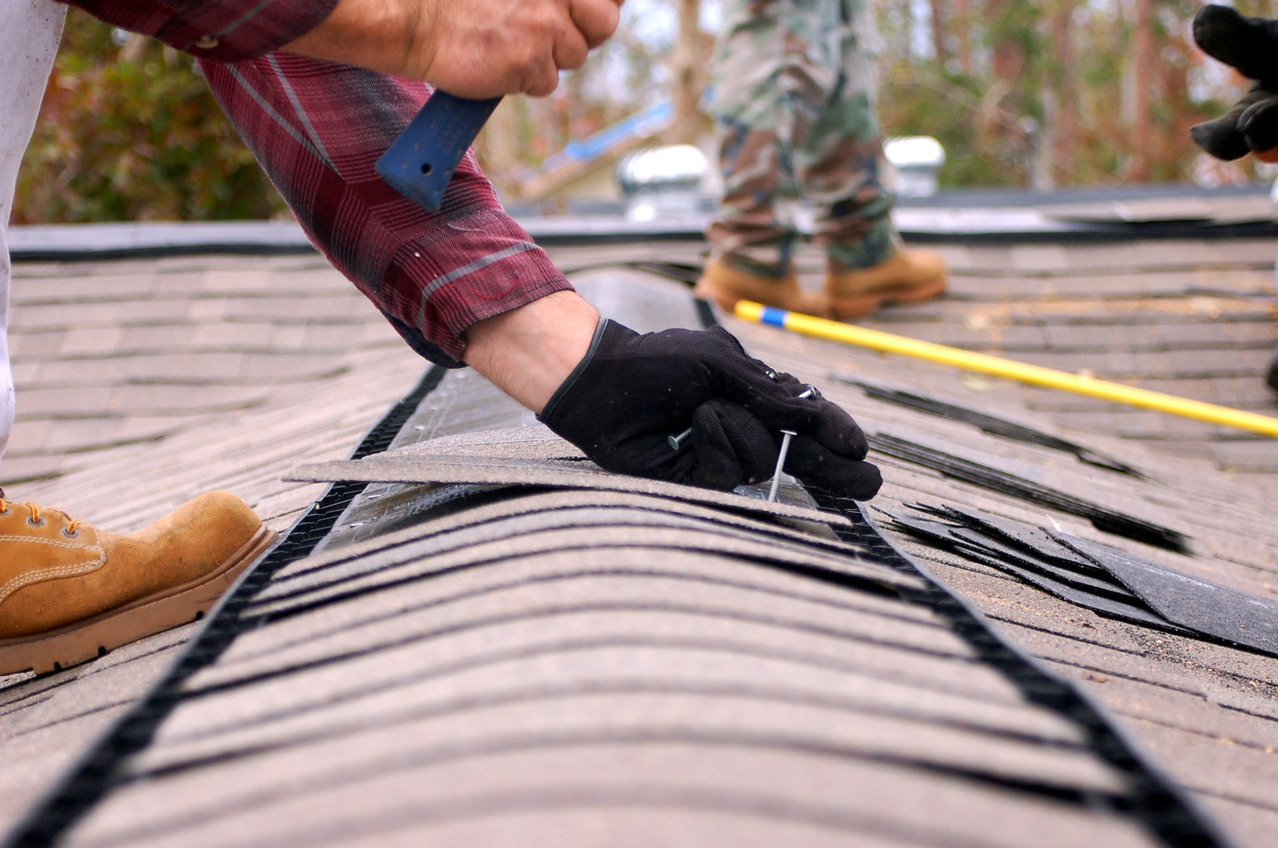
Don’t Be the Victim of a Roofing Scam

Replacing a roof will likely be one of the larger expenses you’ll have as a Florida homeowner. And while you’re probably looking for ways to save money on that major expenditure, be aware that roofing scams are common, and could leave you out of pocket with a roof still in need of repair, or worse yet, on the hook for insurance fraud.
What are some of the most common roofing scams?
Roof scammers take advantage of homeowners by trying to convince them that they can get it done a lot cheaper—or even for nothing. They may do shoddy work, not complete the job, or simply take your money and disappear.
There are a couple of scenarios you should watch out for. One of the most common is for “storm chasers” to come through a neighborhood after a storm, talking to residents or leaving flyers offering to fix damaged roofs, sometimes “at no cost to homeowners.” How is that possible? They may tell you they’ll pay your insurance deductible, or have you sign a contract that includes an Assignment of Benefits (AOB) clause. AOB is an agreement that transfers an insurance claim’s rights or benefits of the policy to a third party (in this case, the roofing company)—that third party files the claim and collects the insurance payments. This sounds good in theory, but in reality has become a huge source of fraud. The costs associated with Assignment of Benefits abuse are a prime reason homeowners insurance is so expensive in Florida.
Another scam involves someone knocking on your door offering to do a free roof inspection. They often say they’re doing work in your neighborhood and will offer you a good deal. Sometimes they even say they just happened to be driving by and noticed some damage on your roof! (If you think about it, how likely is that?) Of course, they will claim they found damage, possibly when there is no damage at all, or not enough to warrant replacing your entire roof. In some cases, scammers actually damage your roof themselves.
Other scams include lowball estimates or requiring a large down payment before starting work. While of course you want to be budget conscious, you may not want to go with the lowest estimate for a roof replacement. In the case of a roof, where quality work is especially important, lowest is not always best. It’s likely either the work will be poor, or they’ll come back in the middle of the job for more money because of “unforeseen” problems or increases in the cost of materials.
You should also avoid making a large down payment. The industry standard runs around 20 percent, so if a roofing company asks for a lot more, that’s a red flag.
How to protect yourself
Replacing your roof is a major investment, so how can you increase the odds that you’ll have a good experience?
First, be wary of unsolicited offers to do a roof inspection. There are many honest and legitimate roofing companies out there, but they probably won’t be going door to door to drum up business. If you know your roof needs to be inspected, repaired, or replaced, ask your friends and relatives for recommendations, or consult a home repair rating service such as Angie’s List or homeadvisor.com.
Before signing a contract, ask for local client references, and call them to see if they were satisfied with the work done. Check with the Better Business Bureau to see if there are any complaints about the roofing company.
Require a written proposal that includes a full description of the work to be done, start and finish dates, and a payment schedule. Make sure you have the roofing company’s business address, telephone number, and tax id number. Ask to see copies of their contractor’s liability insurance and worker’s compensation certificates, so that if one of their employees is injured while working on your roof, you will not be held liable.
Do NOT be pressured into signing a contract without doing your own research.
Do NOT sign any contract that contains an Assignment of Benefits clause without checking with your insurance company or Lakewood Financial insurance agent first.
If a roofing company approaches you with a deal that sounds too good to be true, it probably is. Avoid roofing scams by getting recommendations from trusted sources, and don’t be afraid to take your time and ask plenty of questions. Please feel free to call your Lakewood Financial agent at 941-747-4600 if you have questions about whether or not a roof repair or replacement will be covered under your homeowners insurance policy. You may also contact us online by clicking here.
